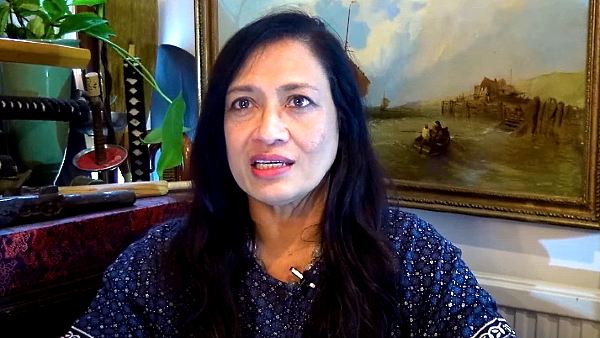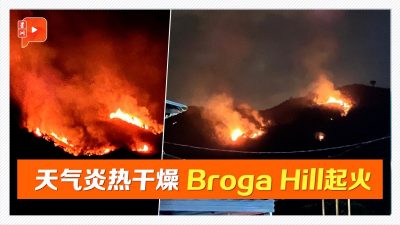
Selangor is Malaysia’s economic powerhouse, the most industrialized and developed state in Malaysia, and arguably its richest, but it is also beset with recurring water supply problems.
Why do we hear about these never-ending water problems in Selangor but not in any other states?
One would have thought that this cash-rich state would have the capacity and resources to deal with water problems once and for all, but apparently this is not the case.
Water problems disrupt lives and businesses, and last week, one incident happened within days of the first, which had occurred on April 30.
The first incident triggered water cuts in 463 areas after reports of odor pollution had been lodged. The five regions, comprising of Sepang, Petaling, Hulu Langat, Putrajaya and Kuala Langat were affected.
The second incident which affected 472 areas in Selangor could not have come at a worse time.
Malaysians were in the midst of celebrating Hari Raya Aidil Fitri, but on the second day of festivities, many experienced a disruption of their water supply.
After “diesel-like” odor pollution had been detected at the Jenderam Hilir Raw Water Pump Station intake, Lembaga Urus Air Selangor (LUAS) had to take several precautionary measures to contain the problem.
LUAS issued a statement which said a heavy downpour had caused increased water levels in the river, and the ensuing swift currents had failed to contain the pollution efforts at Sungai Kabul.
The incident caused a temporary shutdown of the Sungai Semenyih Water Treatment Plant in the morning (06:15 hrs) and the Bukit Tampoi Water Treatment Plant a few hours later (11:30 hrs).
Hee Loy Sian, Selangor state executive councilor for tourism, environment, green technology and Orang Asli, said LUAS had dealt swiftly with the odor pollution by deploying additional oil booms, oil pads and activated charcoal.
He warned that the state government would not compromise with those responsible for the pollution. He also urged everyone to watch out for activities which pollute the water, and report any suspicious activity to LUAS for immediate action to be taken.
So, why is the state unable to manage water pollution problems? Despite being more aware, and despite the great advances in modern technology, we are still unable to control the pollution of rivers and waterways of Selangor.
How should we tackle Selangor’s water problems?
Is it a lack of enforcement? Is it poor and inadequate monitoring of our waterways?
A previous minister of the environment, Yeo Bee Yin, promised to increase surveillance and monitoring of our waterways. Since she was ousted in the Sheraton Move, did her successor resume the surveillance, or was it stopped altogether?
Are politicians interfering in the work of policing businesses?
Is enforcement difficult to achieve?
In the past, owners of companies that operate illegally appear to have escaped scot-free or been lightly rapped on the knuckles, instead of facing the full force of the law.
These owners have powerful cables to the top. Are they paying protection money, amongst other things?
Will politicians stop interfering in the work of local government and allow enforcement officers to do their jobs without fear or favor?
At the same time, will the local councils stop making excuses about failing to prosecute errant companies? Will the judiciary severely punish polluters to act as a deterrent?
Will the rakyat change their mindset and not treat the river as a huge rubbish tip?
It is important we continually show concern about the state of our rivers, and not be bothered only when there is no water to wash, clean or cook.
In 2020, a serious case of water pollution was traced to the activities of an illegal factory discharging its waste into the river.
Subsequent investigations showed that 308 illegal factories were operating at the time.
How do hundreds of illegal factories set up shops and manage to escape the scrutiny of the local authorities? Is enforcement very poor or is it not happening at all? Is protection money being paid so that the authorities can close one eye when it comes to operating illegally?
It would be hard to believe any council worker who claims he is not aware of the illegal factories.
A factory requires the supply of power, connection to water mains, a postal address, a signboard, and various permits from the fire brigade and other regulatory bodies.
Did the council fail to collect business rates from these illegal factories?
Are council workers overworked or understaffed that they are unable to detect illegal factories discharging waste into the rivers?
When will we learn from our mistakes instead of getting used to a few days of heightened activity, then settling back to normal, until the next calamity occurs?
If both the Selangor state and Federal governments are serious about resolving the pollution of our water, air, soil and environment, they will show political will to allow everyone to do their jobs without fear or favor.
Source:
- Malaysiakini: Water to be fully restored in Selangor by 9am tomorrow
(Mariam Mokhtar is a Freelance Writer.)
ADVERTISEMENT
ADVERTISEMENT






































